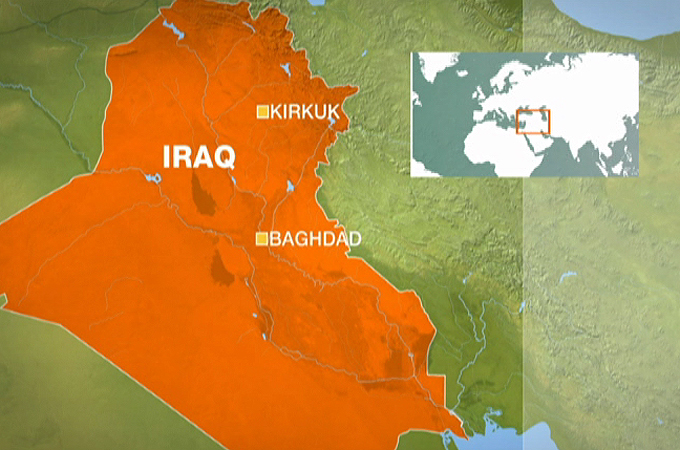Iraqi cities hit by wave of mosque bombings
Four Shia mosques in Baghdad and one in Kirkuk struck by car bombs, with reports of at least 18 dead and dozens hurt.

A series of car bombs near Shia Muslim mosques targeting worshippers attending weekly prayers have killed at least 18 people.
The blasts on Friday, which also wounded more than 100 people, struck within an hour of each other in the Baghdad neighbourhoods of Binook, Qahira, Zafraniyah and Jihad, as well as in an area of the northern city of Kirkuk.
No group immediately claimed the attacks, but Sunni Muslim fighters linked to the Iraqi branch of al-Qaeda frequently target Shia Muslims whom they regard as apostates and supporters of Nouri al-Maliki’s government.
 |
Four car bombs went off near Shia mosques across the Iraqi capital, leaving at least 14 people dead and 35 wounded, security and medical officials said, speaking on condition of anonymity.
And in Kirkuk, which lies 240km north of Baghdad, four people died and 71 were wounded by another car bomb targeting a Shia mosque, Sadiq Omar Rasul, the provincial health chief, said.
Also among the wounded was Mohsen al-Battat, a representative of Iraq’s most revered Shia religious leader, Grand Ayatollah Ali Husseini al-Sistani, who had been leading the prayers.
Hospital sources have told Al Jazeera that Battat is not considered critically wounded.
In Baghdad’s Qahira neighbourhood, an AFP news agency reporter described seeing pools of blood on the ground with massive damage to nearby cars, houses and shops.
Several residents were crying as soldiers imposed a heavy security presence in the area.
Surge in violence
The attacks come amid a surge in violence nationwide as Iraq prepares for its first elections in three years: provincial polls that will be held in 12 of 18 provinces on April 20.
Questions have been raised over the credibility of those polls as elections have been postponed in two provinces roiled by months of protests, and at least 11 candidates have been killed.
The polls are seen as a key barometer of support for Prime Minister Maliki as he grapples with criticism from within his unity cabinet and discontent in Iraq’s Sunni Arab community.
The attack in Kirkuk is also likely to raise tensions in a city at the heart of a long-running dispute over territory between the central government in Baghdad and the country’s autonomous Kurdistan region.
The unresolved row is often cited by officials and diplomats as the biggest long-term threat to Iraq’s stability.
Violence is down from its peak in 2006 and 2007 but attacks remain common.
The latest violence comes just days after the 10th anniversary of the US-led invasion of Iraq, which toppled the Sunni-dominated regime of Saddam Hussein.